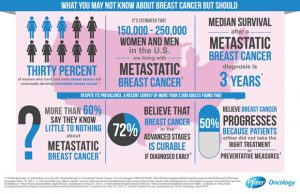Dr. Real Deal recommended that I get sonograms twice a month. Since my age and one of my health conditions put me at a greater risk of premature birth, she wanted to check to make sure that: 1) the fetus was growing properly; and 2) my cervical length fell within the normal and safe range.
(As a woman’s body prepares for labor and delivery, the cervix actually shortens or becomes more effaced. After that, it then stretches out to prepare for delivery, also known as dilation. Both effacement and dilation are measured in centimeters. If a woman's cervix starts to significantly shorten before the third trimester, there’s a strong chance that she will go into labor prematurely.)
So, now that the anatomy lesson is behind us, what happened in my sonogram?
January 7, 2013
At my 18-week sonogram, the technician looked at every organ, every extremity and every vertebrae of the fetus. It was interesting to see how much could be revealed at such an early stage in the pregnancy. As she moved through each region of the fetus' body, the technician checked various items off of her list. Thankfully, everything was developing as it should.
Although the technician had access to a folder with the baby's gender, she wanted to confirm this herself. Since the fetus wasn't in the right position for that, the technician took the ultrasound wand and painfully jammed it into my lower abdomen. She did this on several occasions throughout the exam.
“This thing is stubborn!” she exclaimed. “It’s almost as though she’s moving in a different direction than how I want her to out of spite.”
“That’s my girl in there!”
“Look,” she said as she pointed to the monitor. “If I touch her here, she lifts her butt up so I can’t see anything.”
Sure enough, that's exactly what happened.
"God willing, I'll have met my match with her!"
When the technician inserted the wand to begin the internal exam, the monitor revealed a little foot trying to kick the wand out.
“Are you prepared for a child with a high aptitude?” the technician inquired. “She shouldn’t know how to do this at 18 weeks!”
I laughed out loud. “I just want her to be healthy. If she's gifted, too, even better!" (I had to take the fact that my fetus was gifted with a grain of salt.)
“Okay. She’s in the right position now,” the technician informed me. “Let’s see if we have a hamburger or a hot dog. [Pause.] There’s the hamburger! Look at the three lines.”
“Great!” I yelped, as I tried not to shake my head at the fact that a health care professional had just referred to a vagina/vulva as a hamburger and a penis as a hot dog. I think I would have preferred “hoo ha” and “ding-a-ling!”
When the technician moved on to look at cervical length, I measured in at 4.5 centimeters. That was perfectly normal at this point in my pregnancy.
I smiled to myself, thinking how different it was for me to be in a medical exam and hear words like “perfect” and “normal.” I could get used to this! During the last few measurements, I made a connection that had me in tears on the table.
“Are you okay?” the technician asked.
“Yes, I am. I just realized that January 7, 2011 was the day of my last chemotherapy-related IV. Two years later, here I am. This is wild!"
“Wow!” the technician exclaimed with surprise. “This is a miracle!”
“Yes, it is.”
My tears of joy abated, but my smile continued for the rest of the afternoon.
How did my second sonogram go?
To be continued…

